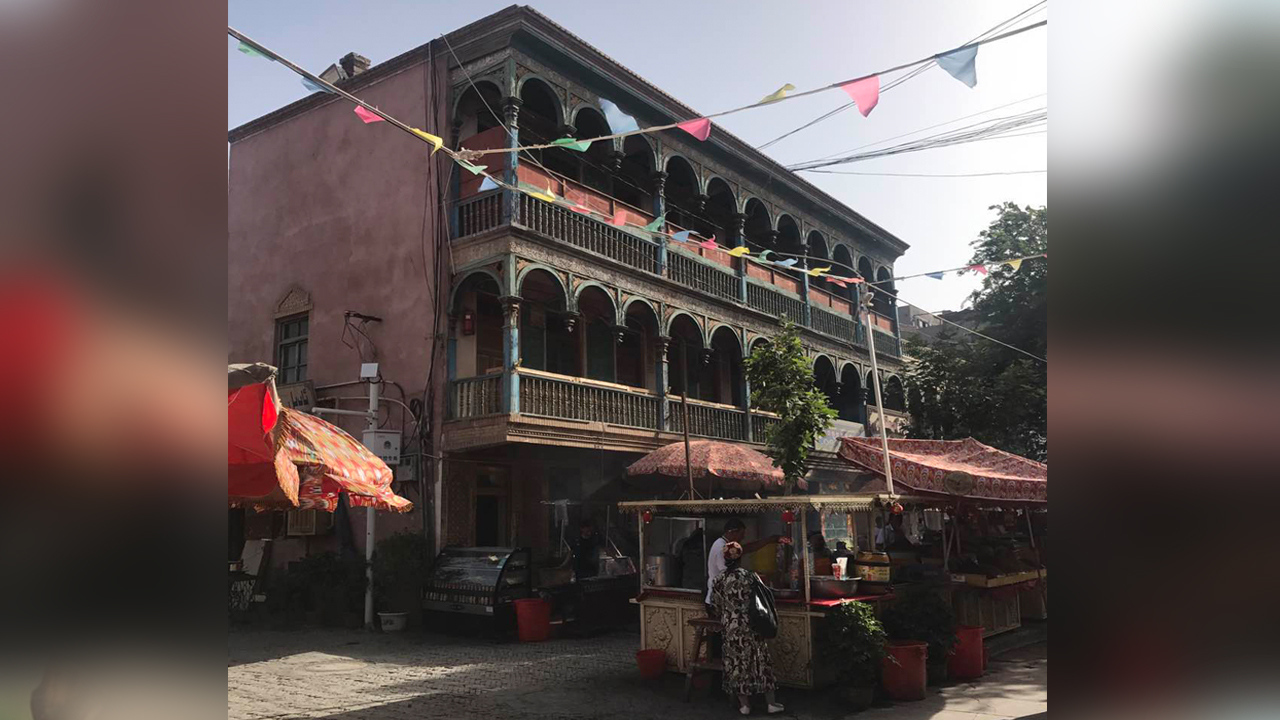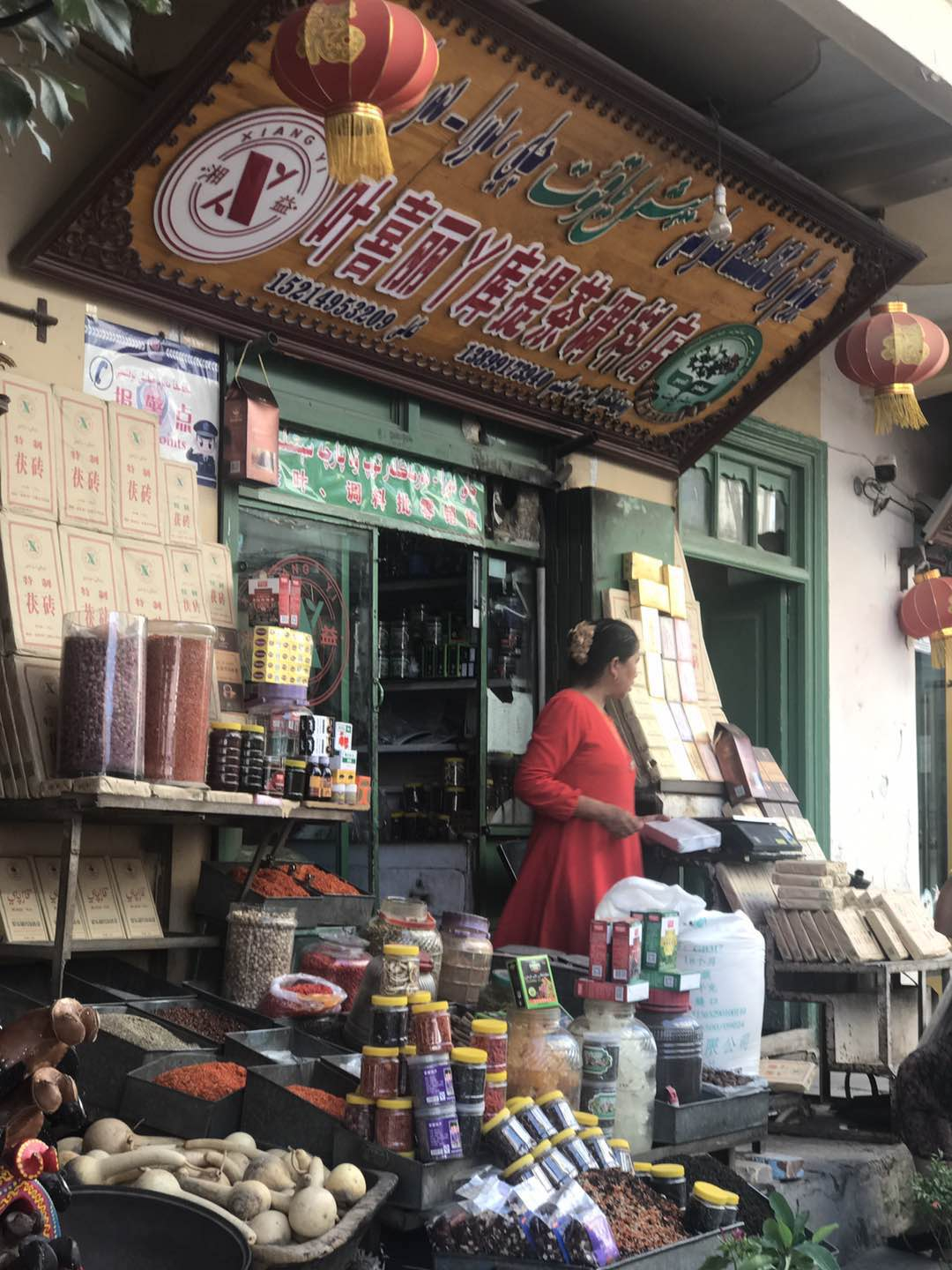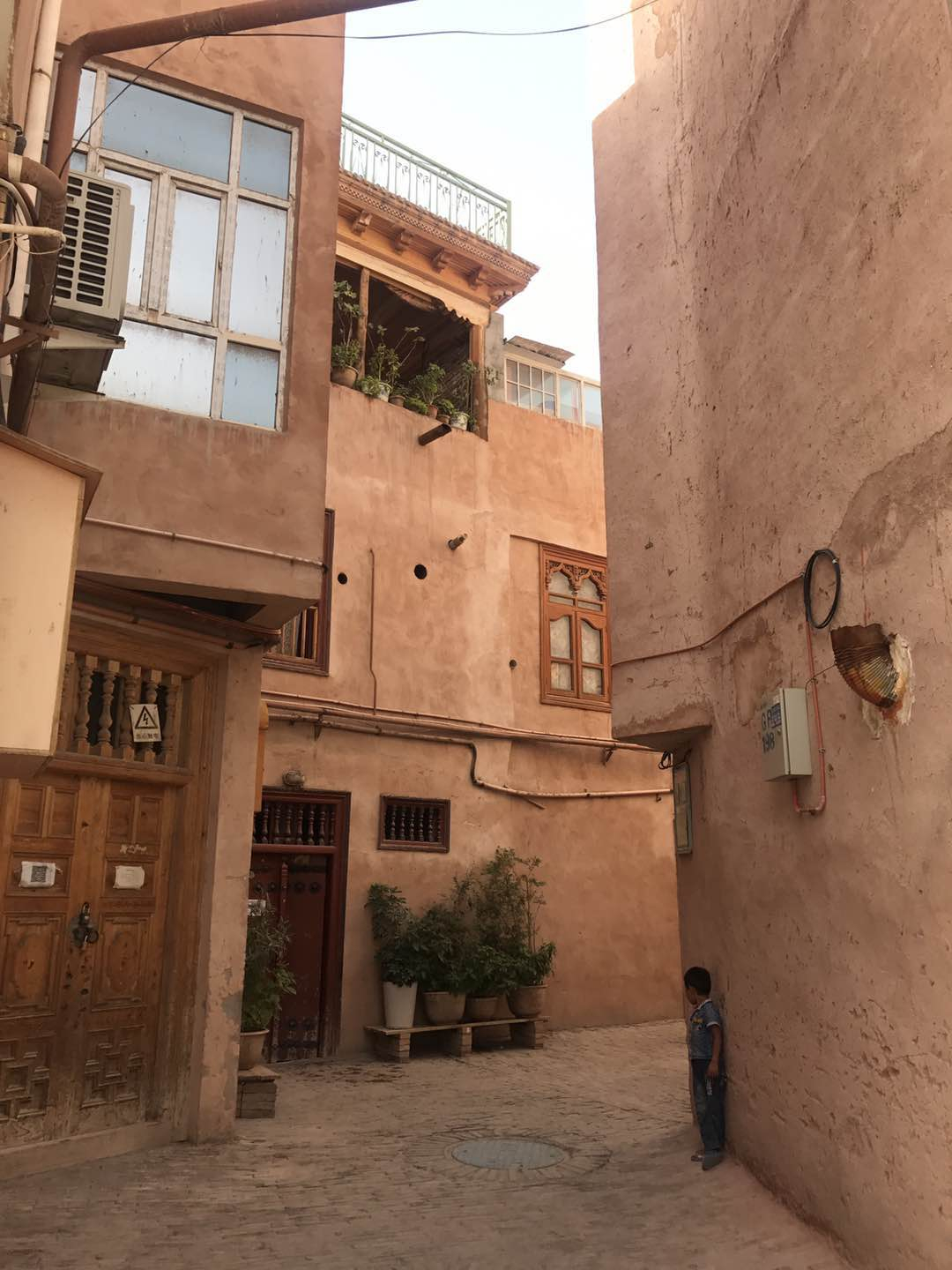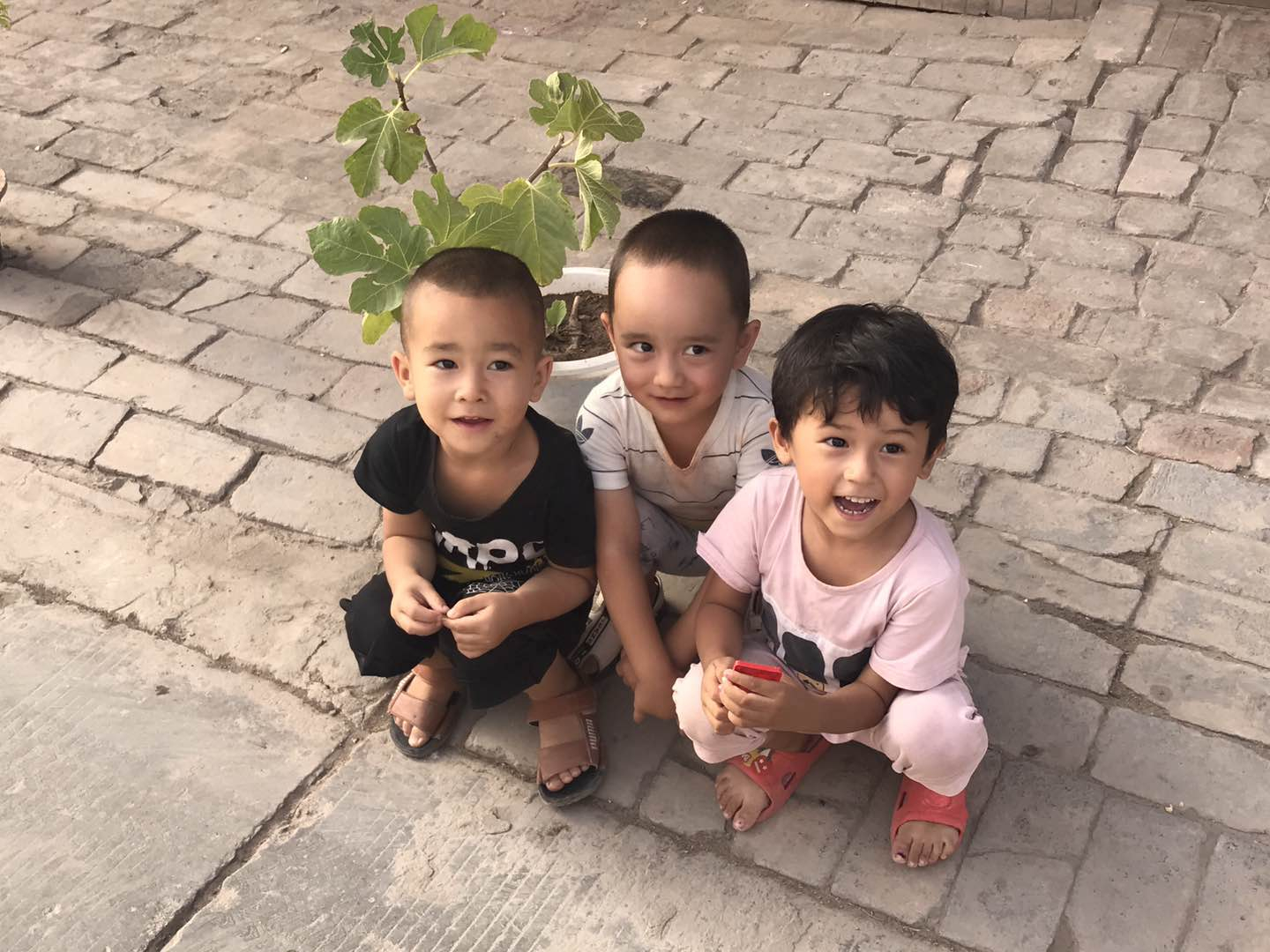
I woke as the airplane landed and realized that I was in Kashgar in
Xinjiang Uygur Autonomous Region, the most western city of China. Yu Qiuyu, one
Chinese foremost writers, once claimed: “If you hope to be a leading writer, go
to western China, go to Xinjiang especially.”
As the Chinese city most neighboring Central Asia, Kashgar might be
an example of Xinjiang and western China's social development as played out on
a miniature scale.
The history of Kashgar can be traced back further than 2000 years
and, in Uygur, the name translates as “The center of jade”.
Historically, Kashgar was an important hub connecting China to
Central and Southern Asia. This splendid history and civilization marked
Kashgar as an important city on the Silk Road.
However, Kashgar is also a sensitive city. Ever since the 1990s,
when Islamic extremism gradually expanded and became rooted in Xinjiang,
Kashgar, briefly became the hometown of some Islamic extremists.

The Old City of Kashgar in China's
Xinjiang Uygur Autonomous Region on August 17, 2018. / Photo by Wang Jin
The security situation became so serious that terrorist attacks in
Xinjiang, especially in Kashgar, became common, and tension between different
ethnic groups in Xinjiang were so palpable that many small incidents turned
into massive clashes.
When my family found out about my planned trip to Kashgar, they were
concerned and asked: “Is it really safe to travel there?" and "Be
careful. Stay inside!"
But, after my arrival, I decided not to lock myself in the hotel and
to instead walk around the city and get to know the locals. When I was on the
street, I was impressed by how safe Kashgar felt. It was a lot like many other
cities in China.
When foreigners come to Beijing, Shanghai and many other Chinese
cities, they are often impressed by how safe it is, even late night.
In Kashgar, very little security could be seen on the streets and
people travel freely with their families. Uygur and Han people live there
together like friends and brothers.

The Old City of Kashgar in China's
Xinjiang Uygur Autonomous Region on August 17, 2018. /Photo by Wang Jin
I was so curious about how the different ethnic minorities feel
about each other. Merem Nisha, a mother of two who works at a hotel, was
extremely positive about the improving safety there.
“More and
more people come to visit Kashgar,” Nisha said, “and the more people who come
here, the more money I can make and put towards improving my family’s
situation. I am a Uygur, but I have many Han friends. Kashgar welcomes
everyone, we are all brothers and sisters.”
Chen Hui, a taxi driver who took me to the old city of Kashgar, also
expressed his solidarity with the Uygur people in Kashgar: “Look, we live in
the same city, we are a big family. I cannot say that there are no Islamic
extremists and terrorists here, but these extremists and terrorists are our
common enemy.”
When night falls, many people go out to dance, eat and take
pictures. I asked an Uygur couple who were walking by if it was safe here.
“Absolutely,” they replied, “It is a safe and beautiful city, and the people
are friendly here. Kashgar is safe, and it has been years since the last
terrorist attack.”

The Old City of Kashgar in China's
Xinjiang Uygur Autonomous Region on August 17, 2018. / Photo by Wang Jin
Xinjiang has become a sensitive topic lately because of its
sensitive environment. Many rumors and fake news stories have emerged in the
Western and Arab media, sparking discussions and considerations of hypothetical
scenarios.
According to many of these reports, Xinjiang has become a hotbed of
trouble and "ethnic suppression”, and Kashgar is supposedly now a city
where ethnic cleaning, suppression and family separations take place.
However, when you go to Xinjiang, when you talk to residents of
Kashgar, when you travel around the city at night, you can sense the harmony
between the different ethnic groups.
The real Kashgar can only be touched, felt and understood with close
observation, not with fake reports and rumors from those so-called “observers”
who are reporting from thousands of miles away.
Executive editor/Liang Chenglu
Editor/Meng Han
Author: Wang Jin is an Adjunct Fellow at the Charhar Institute in Beijing and Research Fellow at Northwest University.
Source: CGTN, 2018-08-18
Original Link: https://news.cgtn.com/news/3d3d514e3363544e79457a6333566d54/share_p.html